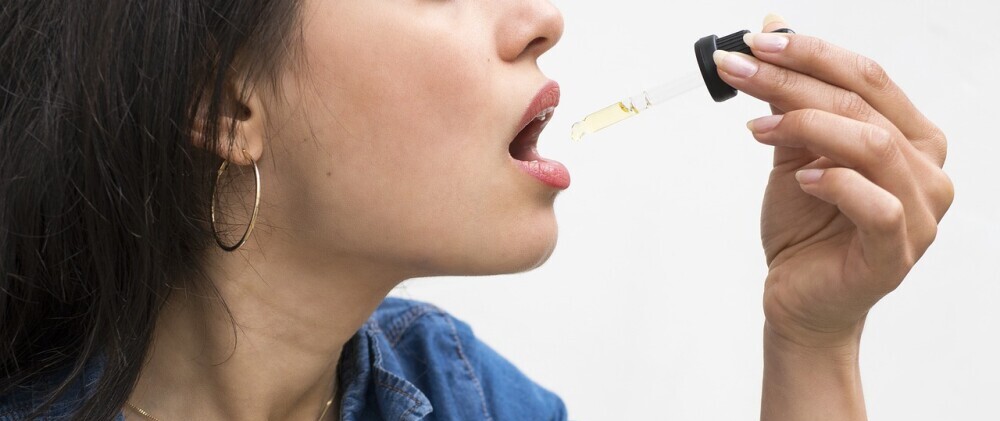
CBD oil, short for cannabidiol oil, might sound like something out of a sci-fi novel, but it’s actually a natural compound found in the cannabis plant. Unlike its well-known cousin THC, CBD doesn’t give you that ‘high’ feeling. Instead, it’s been getting attention for its potential health benefits, especially in managing anxiety.
Now, here’s how it all works inside your body. CBD engages with something called the endocannabinoid system. Imagine this system like a busy network of receptors throughout your body, helping keep things like mood, appetite, and sleep balanced. Sounds pretty important, right? Well, CBD interacts with these receptors, particularly ones related to our mood and stress responses, which might explain why folks think it helps with anxiety.
You might be wondering about the legality of CBD. In many places, CBD products are legal as long as they contain less than 0.3% THC, but don’t just take my word for it. Always check local laws to be sure, because enforcement can be strict, and you don’t want any surprises.
Safety is another biggie. While CBD is generally considered safe, some people report side effects like dry mouth or fatigue. It’s super important to have a chat with a healthcare professional before adding CBD to your routine, especially if you’re on other meds. They can help ensure it’s a good fit for your specific situation, offering peace of mind and personalized advice.
Anxiety and CBD: Delving into the Research
Research into CBD and anxiety is kind of like a new frontier, full of promise but still needing more exploration. Studies have popped up highlighting CBD’s potential to ease anxiety symptoms, but many of these have been smaller in size or focused on specific populations. Still, the early findings are pretty intriguing.
CBD’s potential benefits for anxiety seem to come from its ability to modulate how our brains respond to anxiety-inducing stimuli. It’s thought to work by interacting with serotonin receptors in the brain; serotonin being the brain chemical often linked to happiness and well-being. Basically, by influencing serotonin levels, CBD might help keep anxious feelings in check.
But how convincing is the evidence? Let’s break it down. Some clinical trials suggest it might reduce social anxiety and help with generalized anxiety disorder, PTSD, and anxiety-induced insomnia. Yet, with any emerging field, there’s a mixed bag of outcomes. More robust, long-term research is essential to paint a clearer picture.
Real-world experiences offer some perspective too. Many users report less anxiety, better sleep, and a generally calmer demeanor. However, it’s crucial to remember this is anecdotal evidence, so while it adds color, it doesn’t give the full story.
That said, like any supplement or medication, CBD isn’t free from potential side effects. Despite its reputation for being relatively safe, some users mention experiencing dry mouth, lowered blood pressure, or drowsiness. Heightened awareness of these risks allows users to make informed decisions and handle any unexpected reactions.
Ultimately, while CBD seems to present a new horizon for managing anxiety, it’s vital to balance hope with caution, centering decisions on concrete science and professional guidance.
The Science Behind CBD and Calming the Nervous System
- CBD’s influence on the nervous system is like tuning a radio to get rid of static; it can help smooth out those anxious frequencies. The nervous system is complex, with our brain and spinal cord directing the show, and CBD seems to act as a sort of middleman, moderating responses without taking over.
- From a neuroscientific perspective, CBD’s charm might lie in how it affects neurotransmitters. Ever heard of GABA? It’s a neurotransmitter that stifles nerve transmission in the brain, quieting the noise. CBD may enhance GABA levels, which could help calm the racing thoughts often tied to anxiety.
- Another intriguing aspect of CBD is its knack for influencing serotonin. By possibly boosting serotonin’s calming influence, CBD might help you feel more grounded when everything feels like it’s going a mile a minute.
- Why does CBD work for some and not for others? There are a bunch of factors at play. Differences in body chemistry, the quality of CBD used, and even what’s going on in your life can all affect how you react to CBD. This makes each person’s experience with CBD quite unique. Trial and careful observation are key.
- While the science supporting CBD’s impact on the nervous system and anxiety is evolving, understanding your own body’s response is essential. Starting with smaller amounts and keeping track of how your body feels can help you tune into how CBD may benefit you personally. It’s all about finding what clicks for you.
Practical Considerations: Dosage and Timing
Figuring out whether CBD really works for anxiety isn’t a one-size-fits-all situation. Some folks swear by it, while others find it less effective. Success can depend on the right dosage, which varies from person to person. This makes personalization key.
When it comes to dosage, there’s no definitive answer. However, people often start with a small dose of around 10-20mg per day and adjust as needed. Keeping track of how you feel with each change can help determine the best amount for you. Always double-check with a healthcare pro, as they can help tailor advice based on your needs.
Does CBD help calm the nervous system? Plenty of users think so. It might not mute the anxiety orchestra entirely, but for many, it takes the edge off enough to be more manageable.
Time is another factor to keep an eye on. How long CBD takes to kick in can vary. For some, relief comes in about 20-30 minutes, while others notice effects after a few hours. Consistency in taking CBD might help make its effects more predictable.
Multiple factors can influence how quickly you feel the benefits, including your metabolism, the type of CBD used, and if it’s taken with food. Keeping these in mind can help set realistic expectations.
Making an Informed Decision: Choosing the Right CBD Product
With so many CBD products out there, picking the right one can feel like finding a needle in a haystack. Knowing what you’re looking for is key to ensuring you get a quality product that suits your needs.

CBD comes in various forms, from oils to gummies and capsules. Each has its perks. Oils and tinctures are popular for those who want adjustable dosage, while gummies offer convenience and a precise dose in each piece.
When shopping for CBD, transparency is non-negotiable. Check if the company provides third-party lab testing results. This ensures you’re getting what the label says you are, minus nasty surprises.
Evaluating the product’s ingredients is also crucial. Look for something natural without synthetic additives. Full-spectrum CBD might offer enhanced benefits due to the ‘entourage effect,’ where all cannabinoids work together.
Don’t let flashy marketing distract you from what’s important. Research the company’s reputation and customer reviews. A few minutes in Google can save you from regretting a decision.
Navigating the CBD world safely requires a mix of skepticism and curiosity. It’s about finding products that are both safe and effective, backing your choices with as much research as possible.

Hello,
This article offers a really clear and insightful explanation of CBD oil, especially regarding its potential to help with anxiety. I appreciate how it highlights both the promise and the limitations of CBD as a treatment, especially in terms of its effect on the endocannabinoid system and serotonin receptors. It’s reassuring to know that CBD doesn’t give you a “high” like THC but still might have a positive impact on mood and stress. The article does a great job of balancing enthusiasm with caution, pointing out that more research is needed while emphasizing the importance of consulting with a healthcare professional before trying CBD—something I think is often overlooked in the conversation about alternative treatments.
What really stood out to me was the practical advice on dosage and timing. Since CBD can affect everyone differently, it makes sense to start with a small dose and adjust as needed. This approach gives me confidence that I can safely explore whether it’s right for me or anyone I know who struggles with anxiety. The focus on quality control—ensuring the product is lab-tested and free from synthetic additives—is also a key takeaway, especially with how many products are flooding the market these days.
My question is, for those who have tried CBD for anxiety, what kind of results did you see? Did you notice improvements in your anxiety, and how long did it take to feel the effects?
It’s great to hear that the article resonated with you, especially with its focus on both the science and practical advice on using CBD for anxiety. The points about starting small, consulting with a healthcare professional, and prioritizing quality are essential with any supplement, especially one as complex as CBD.
This is great information on how CBD oil can help with anxiety. I personally have never used the CBD oil, but I have an Aunt who says it works very well for her. It’s interesting how the time frame before kicking in can be from 20-30 minutes to a couple of hours. I supposed this is because everyone has varying levels of tolerance. I agree with you that starting with lower doses is the best approach. With first time users, it could be difficult to determine exactly what the outcome would be. I often run and hike to manage my stress and anxiety- but if it ever gets really out of control, I may actually consider the CBD Oil now.
Hello, I like your article and was wondering if you might know about CBD oils and if they help with epilepsy. I have epilepsy and have been told it could help with day-to-day life. Do you have any recommendations on what type of CBD oil to try and if they could help with seizures?
Hi there, thank you for your question! CBD oil has shown promise in supporting people with epilepsy, particularly when it comes to managing seizures. There has been some research that suggests CBD may have anticonvulsant properties, and it’s even been approved in certain cases for epilepsy treatment, particularly in the form of Epidiolex, a CBD-based medication for children with certain types of epilepsy like Dravet syndrome and Lennox-Gastaut syndrome. This is something you should talk to your health professional about. More research is being done all the time.